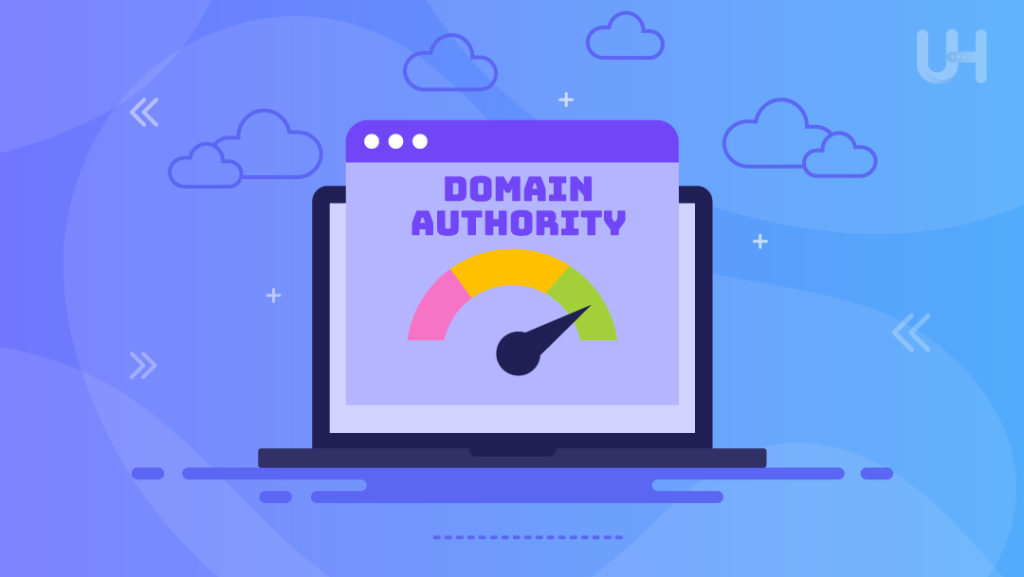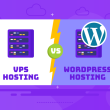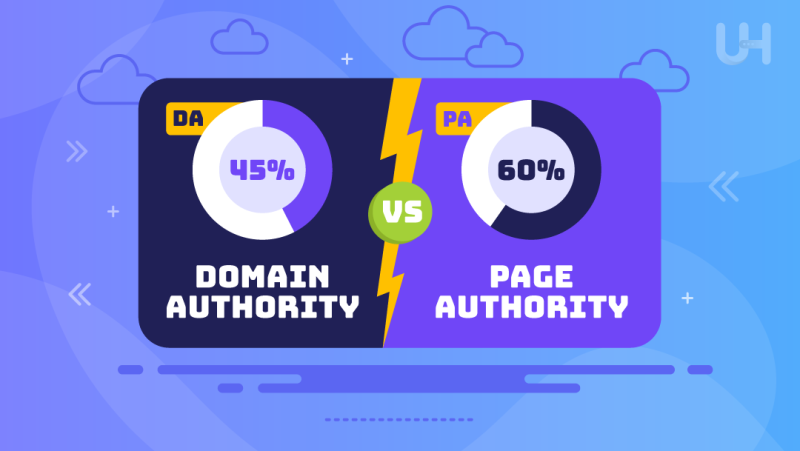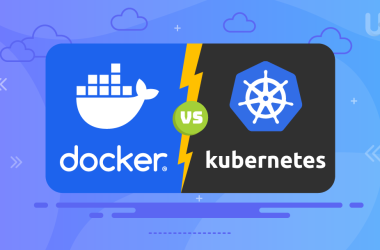Two important metrics come up within the SEO world: Domain Authority vs Page Authority or DA vs PA. Anyone wishing for better visibility on search engines such as Google absolutely needs to understand what these terms refer to. While they sound similar and related, they measure different things and are worked out differently.
In this article, we discuss some of the differences between Domain Authority vs Page Authority, how they impact each other and your website performance, and what you should do to improve them.
Domain Authority (DA) is the score predicted by Moz, describing how well a website will perform on search engine result pages. Scores are within a 1–100 range, compartmentalized with equal intervals, with the higher the score, the greater the likelihood of ranking. DA is derived from the total number of links, linking root domains, and link quality distributions. In other words, DA gives a view of a website’s general strength in terms of credibility from the search engine’s perspective.
One important fact about Domain Authority is that it is a relative but not an absolute metric. This means that a DA of 50 is not qualitatively “good” or “bad”; it all depends on what the DA of the other leading websites within that niche will look like. Generally speaking, a high Domain Authority correlates to a high ranking in the search results, but that is not a rule. In any case, DA may provide some insight into your site’s potential; therefore, combine it with other SEO metrics for a more holistic analysis.
Page Authority (PA) is a Moz-invented score that predicts the performance of a single page within a website in search engine results pages. Like Domain Authority, the rating of PA is out of 100, but PA is only for the specified individual page and not for the overall website. The ranking is based on factors such as the page’s link profile, content characteristics, or internal linking structure.
An important clarification here is that Page Authority can wildly differ within the same root domain from one page to the other. For example, a well-optimized blog post with many high-quality backlinks and reliable blog hosting could easily have a better PA than the home page of the same website. This makes PA a useful criterion for evaluation purposes in the ranking potential of specific pieces of content. However, like DA, it is one of those metrics that should not be in isolation but rather part of a suite of metrics to obtain a full understanding of the SEO performance of a page.

Although Domain Authority and Page Authority are both significant in determining the SEO strength of a website, they differ in every other way as their function and way of measurement are different. Here are some Domain Authority vs Page Authority differences:
Focus Area
Domain Authority is the score that calculates the overall ranking potential of the entire website, taking into account the total number of inbound links, the diversity of linking root domains, and the general quality of the site’s linking profile. In contrast, Page Authority is focused on a singular page’s ranking potential within a domain. It measures the optimization for factors that are specific to that page, such as the quality of the content, on-page SEO, and backlinks pointing to it.
Use Case
DA has proved very effective in developing a comparative study between your website and the others in the same niche. It gives you a more comprehensive view of where your website stands in the search engine’s eye. On the other hand, Page Authority is focused and granular, enabling the user to grade the strength of each standalone page. This becomes helpful when you need to optimize any single content piece or test the performance of important landing pages.
Calculation
The algorithms behind the calculations of DA and PA are both well-complicated and multifarious. It may be worth mentioning that DA looks after the link profile on a domain level, whereas PA focuses more on one single page. The difference in this calculation means that a page on a low-DA website can still have a high PA if it has a strong link profile and on-page optimization.
Power Your SEO Strategy with the Right VPS
Are you looking to boost your website’s SEO performance? UltaHost’s SEO VPS gives you the speed, reliability, and control needed to optimize your site’s performance, helping you improve both Domain Authority and Page Authority.
Improving Domain Authority is a long process that constantly needs constant work on different SEO factors. The following are some potential strategies to increase your DA:
- Make High-Quality Backlinks: Ensure that you build backlinks with relevant and quality sites. High-quality backlinks are, in fact, one of the best factors in increasing DA.
- Make Link-Worthy Content: Create informational, engaging, and evergreen content that appeals to your target audience. Linkable content will naturally enhance your DA.
- On-page Optimization: Optimize your site with the right keywords, meta tags, and clean URL formats. This will help search engines crawl and index your website effectively.
- Improve Website Architecture: Well-organized architecture, which follows hierarchy, helps users get what they want, and helps search engines understand your content. This helps improve DA.
- Technical SEO Problems Fix: Monitor your site periodically for issues such as broken links, slow loading times, or duplicate content that may negatively affect your DA.
- Increase Social Signals: Share your content using social media platforms and hosting social media campaigns to increase its reach and increase your opportunities for earning backlinks.
To make a rank better on search engine result pages, you will have to make different pages optimized. Here’s how you can enhance your PA:
- Content Quality: Ensure that your content is of high quality. It needs to be relevant, well-researched, and add value for the reader.
- Internal Linking: Create a strong website structure for internal linking that channels authority from the strong PA pages to those needing support. This might help attain better PA for a lower-ranked web page.
- Build Page-Specific Backlinks: Similar to DA, backlinks are more important for PA. Focus more on acquiring backlinks that are directed toward the page you want improved.
- On-Page Factor Optimization: Ensure your target page is fully optimized for on-page SEO factors, including keyword use, meta tags, header tags, and image alt text.
- Provide Better User Engagement: With good optimization, user signals like Click-Through Rate, time on page, low bounce rates, etc., may contribute well for PA. Make content that allows you to be on a site for a longer period and interact with the web page.
- Regular Updates on Content: Keep much of your content updated and current. Consistently updated content makes sure your PA doesn’t bat an eye or, worse, increases—that is, it does not degrade.
Conclusion
Domain Authority vs Page Authority: whichever one you focus on, you must know the difference between these two metrics in order to improve your website’s overall SEO performance. Domain Authority summarizes your website’s rank, while Page Authority is more focused and talks about individual pages. You improve not only DA but also PA through the implementation of strategies. This will strengthen your site’s presence in the search engine results for better website visibility. Ultimately, it comes down to whether you want to target Domain Authority or Page Authority more; it depends upon your SEO goals and where you need the most improvement.
Choosing the right domain is the first step toward building a strong online presence. With UltaHost’s Ulta Domains, you can secure a memorable, high-quality domain that will boost your Domain Authority and Page Authority.
FAQ
How do Domain Authority and Page Authority affect local SEO?
DA boosts overall visibility, while PA helps specific local pages rank better in local searches.
Can social media activity influence Domain and Page Authority?
Indirectly, yes, by driving traffic and increasing backlink opportunities.
Do nofollow links affect Domain Authority or Page Authority?
Not directly, but they can diversify your link profile and drive traffic.
Can a new website quickly achieve high Domain Authority?
It’s difficult; achieving high DA typically requires time, quality content, and strong backlinks.
Does domain age impact Domain Authority?
Yes, older domains often have higher DA, but newer ones can compete with strong SEO.
How do internal links impact Page Authority?
Internal links distribute authority, potentially boosting the PA of linked pages.
Can changes in site structure impact Domain or Page Authority?
Yes, structural changes can affect both; proper redirects and a clear structure help mitigate this.












